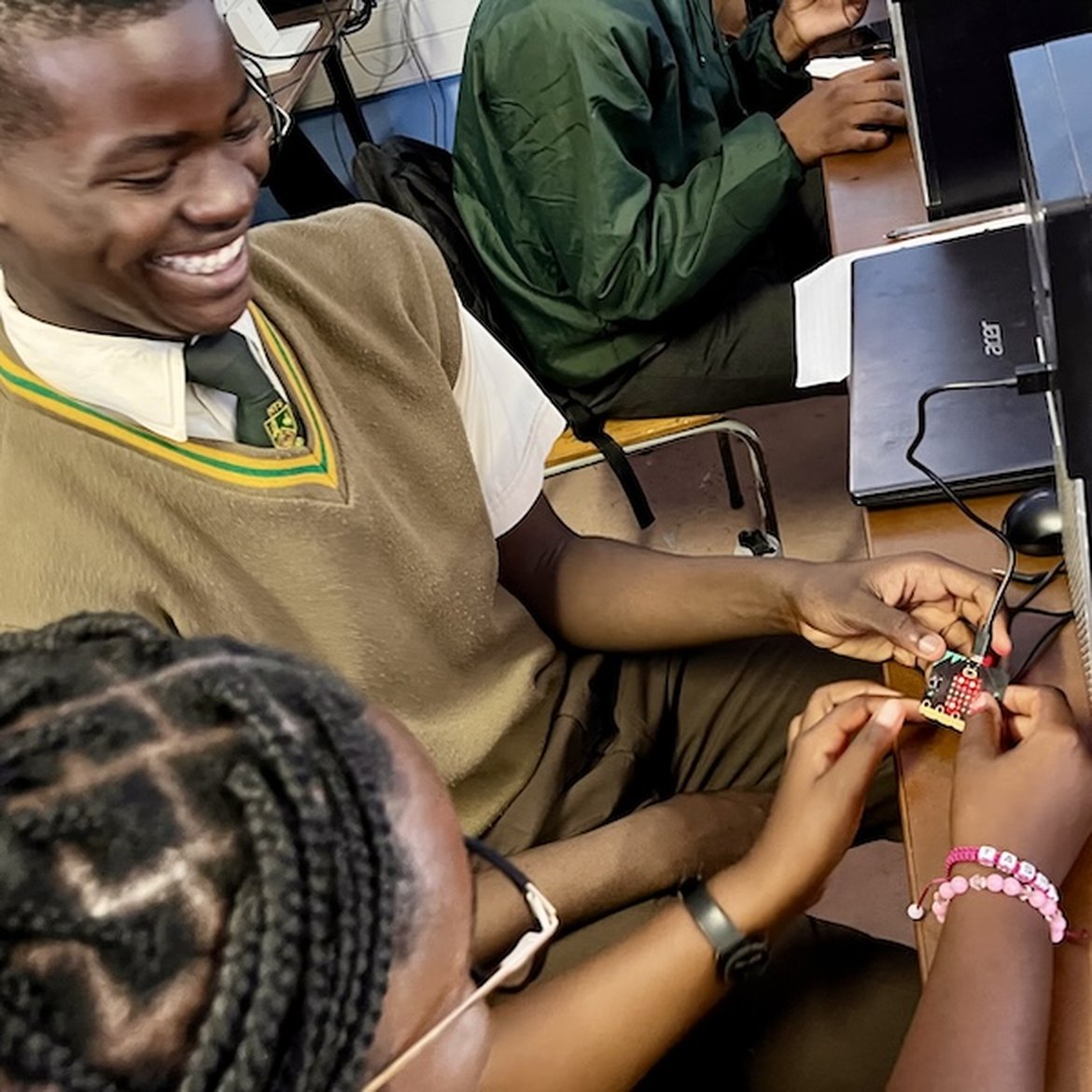Wednesday
26th February
NIPAM
Paul Nash Street
Auditorium
08:30 Registration
09:00 Welcome and introductions
09:35 Designing for users: building a user-centric Django app for NBA fans
Kudzayi Bamhare
Building ShotGeek, a Django web application for NBA fans, taught me the value of a user-centric design approach. I'll will walk you through how I crafted an app that prioritises the fan experience, from designing intuitive features to making data visualizations accessible and engaging.
10:10 Don't worry, be hacky
Lindley Coetzee
The best motivation you will find is in building things that you can actually use yourself, at work or at home - and it helps if you can stop worrying about doing it the "correct" way.
10:45 Morning break
11:50 Simplifying Django components
Sakaria Ndadi
Developing consistent and reusable frontend components in Django
12:25 Get Your Data in 3, 2, 1…
Saurav Jain
Want to pull useful information from websites but don't know where to start? This session will break it down so you can quickly understand and begin web scraping.
13:00 Lunch
14:00 Done in Namibia! Building a highly performant and secure finance application in Python
Robbins Kariseb
Real software is being built in Namibia - Robbins from Adaire describes Python's role in it.
14:30 Python for Geospatial Intelligence Solutions (GIS) and environmental impact
Victory Tulongeni Andreas
Python, GIS, and AI empower data-driven solutions for environmental monitoring and sustainable development. They can help us address global challenges with community-focused initiatives.
16:00 Software as a blueprint for change, creativity, and profitability
Frans Nekongo
How software can be a powerful model for solving real-world problems
15:30 Afternoon break
15:30 Python in Namibian high schools to empower our future innovators
Uetusuvera Kuhanga
Strategies for integrating Python into high school curriculums with minimal resources
16:40 Lightning talks
17:30 Close
Room 2 - workshops
11:00-13:00 Multi-tenant apps using Django
Shaun De Ponte
I'll introduce a novel way of creating multi-tenant apps using Django... no third-party packages need apply! Imagine building a software-as-a-service platform where each client has their own secure space, yet managing it all feels like juggling too many balls at once. How do you ensure that each tenant’s data remains isolated, yet accessible, without losing your sanity - or compromising on performance?
This session requires basic familiarity with Django.
14:30-16:30 Actorisation and Monetisation: 101
Saurav Jain, Katerina Hronikova
What if you could turn your coding skills into a profitable micro-SaaS business in hours, not months? This session is for aspiring and independent developers eager to solve real-world problems without the hassle of building a full SaaS platform.
Room 3 - micro:bit workshops
11:50:-16:00 Hands-on Python with BBC micro:bit
Daniele Procida
Learn Python and physical computing from scratch.

Thursday
27th February
NIPAM
Paul Nash Street
Auditorium
08:30 Registration
09:30 Welcome and introductions
10:00 Content-based recommendation engines
Niek Mereu
Recommendation engines are embedded in a wide range of applications, playing a critical role in personalising user experiences - I'll show how they can bring value, especially to small companies and start-ups.
10:30 Evaluating binary classifiers with Python scikit learn Library
Wiza Msuku
I'll show how the Scikit-Learn library can be used to efficiently evaluate multiple binary classifiers by using metrics like accuracy, precision, recall, and ROC AUC.
11:00 Morning break
11:30 Building security applications with Django
Tinomudaishe Ndhlovu
How to harness the power of Python and Django to develop user-friendly cybersecurity tools
12:00 PyLadies panel
Hosted by Elise Kasai
This panel will explore the diverse contributions of women in tech, discussing how Python and technology foster inclusivity, innovation, and solutions across different fields in Namibia.
13:00 Lunch
14:00 Security - Passkeys in Django
Makai Kahilu
Passkeys offer a new approach to authentication method, enhancing security and usability. I'll show how Passkeys work, their phishing resistance, and how to integrate them into Django projects.
14:30 How we Teach Python to Kids using Blockly
Aaron Muti
Blockly's visual interface is an effective an engaging way to teach Python to children.
15:00 The map of your AI career
Andreea Munteanu
This talk will present AI roles that people can follow. It will highlight the key considerations, necessary skills and long-term vision for different careers in the industry.
15:30 Afternoon break
16:00 Teamwork makes the dream work
Sheena O'Connell
Ask any successful software developer - it takes a lot more than technical skills to be successful in this game. Software development is a team sport.
16:30 Integrating IoT and Machine Learning for Sustainable Agriculture
Gareth Chiwara
A proposal to bridge critical challenges in agricultural sustainability by demonstrating how Python can transform water resource management
16:40 Lightning talks
17:30 Close
Room 3 - workshops
10:30-13:00 Teaching OpenAI's GPT models Python
Luděk Matyska
Ever wondered how to use OpenAI's GPT models through the power of Python? This workshop will teach you how to use OpenAI's Python API to query, improve and ultimately make their models use Python functions of your own, turning the LLM from a simple chatbot into capable agent.
Room 3 - workshops
13:30-16:00 Tackling malaria with Python
Ditiro Rampate
This workshop explores the use of Python to tackle malaria diagnosis in Africa. Participants will use TensorFlow, OpenCV, and Matplotlib to preprocess and analyze images from Malaria Detection dataset, building a convolutional neural network (CNN) to classify blood slides as infected or uninfected, addressing critical healthcare challenges.
Room 3 - micro:bit workshops
14:00:-16:00 Hands-on Python with BBC micro:bit
Daniele Procida
Learn Python and physical computing from scratch.
